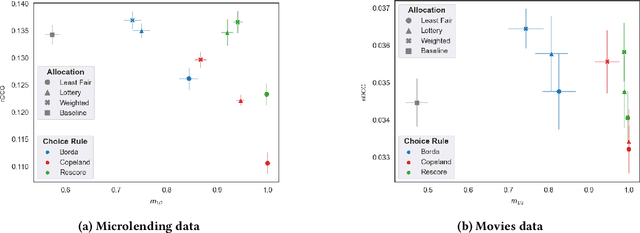Social Choice for Heterogeneous Fairness in Recommendation
Paper and Code
Oct 06, 2024
Algorithmic fairness in recommender systems requires close attention to the needs of a diverse set of stakeholders that may have competing interests. Previous work in this area has often been limited by fixed, single-objective definitions of fairness, built into algorithms or optimization criteria that are applied to a single fairness dimension or, at most, applied identically across dimensions. These narrow conceptualizations limit the ability to adapt fairness-aware solutions to the wide range of stakeholder needs and fairness definitions that arise in practice. Our work approaches recommendation fairness from the standpoint of computational social choice, using a multi-agent framework. In this paper, we explore the properties of different social choice mechanisms and demonstrate the successful integration of multiple, heterogeneous fairness definitions across multiple data sets.
 Add to Chrome
Add to Chrome Add to Firefox
Add to Firefox Add to Edge
Add to Edge